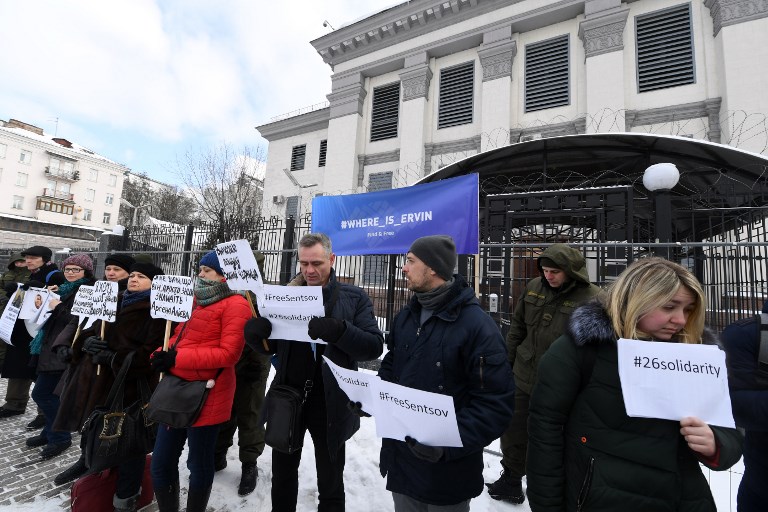As Ukraine enters the fifth year of Russia’s war in Donbas in April, Russia is preparing to hold its presidential elections on March 18. However, Russians in Ukraine will not be able to vote for their president. In any case, the Russian vote is not recognized as a democratic election and serves merely as a coronation for Vladimir Putin’s dictatorship.
Ukraine’s Interior Minister Arsen Avakov said that Russian embassies will not be accessible for voting because the Kremlin is planning to have the Russian-occupied Crimean peninsula take part. Russia invaded and annexed Ukraine’s territory in 2014.
Ukraine’s Foreign Ministry sent a note in February demanding that Moscow withdraw elections in Crimea if it wanted to be allowed voting in Russia’s premises of the diplomatic and consular missions.
Based on the latest census in 2001, around 17 percent people in Ukraine identified themselves as Russians – some 8 million that time. This is the largest minority in Ukraine, followed by Belarusians (only 0.6 percent), Moldavians, and Crimean Tatars. It is not clear how many Russian citizens in Ukraine plan to vote on March 18.
“To date, the Russian Federation has not abandoned its unlawful intentions,” Avakov wrote on Facebook on March 16. “The Interior Minister states that illegal elections in sovereign Ukrainian territory in violation of all international law are unacceptable.”
The diplomatic institutions in Kyiv, Kharkiv, Odesa and Lviv will be accessible exclusively for those with diplomatic status. To avoid provocations, the premises will be protected by National Police and National Guard.
Russian’s Embassy in Kyiv said they are “outraged” by this decision.
“All responsibility for the violation of the rights of Russian citizens will lie on the Ukrainian side,” the embassy note said.
The Russian side sent a note to the Ministry of Foreign Affairs of Ukraine demanding that Ukraine ensure the possibility of holding elections. The embassy also said they “will do everything to ensure that polling stations in Russian institutions will be opened on election day in Ukraine.”
Meanwhile, Ukraine’s Foreign Minister Pavlo Klimkin told BBC News he will go to Brussels to discuss farther strengthening of the sanctions against Moscow immediately after Russia’s elections.
In March, the parliament adopted an appeal to the international community calling to condemn and not recognize the elections in the territory of the occupied Crimea. The official letter was sent to the United Nation secretary general, the chairman of the council and all members of the delegation. The lawmakers issued a similar appeal in 2016 during Russian parliamentary elections.



